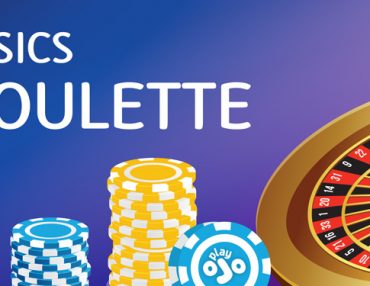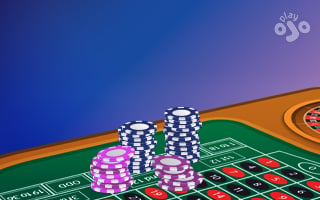I’ve been playing roulette for 25 years and I’ve heard loads of misconceptions about the game. Some are complete myths, some have a grain of truth, and often it’s hard to tell between them. So thi9s is my attempt to investigate the most common roulette myths I’ve heard over the years, and see if they are true or false!
Fancy listening instead? Here’s the podcast I recorded about roulette myths.
What is a roulette myth?
Casino games attract gamblers, and as a group, there’s usually a fair bit of superstition, conspiracy theories and scepticism.
Roulette has its fair share of myths, and almost all are in some way related to fairness, randomness or probability. Some of them clearly nonsense and easily disproven while others contain some element of truth hidden among the weeds.
Let’s sort the wheat from the chaff, pluck out anything useful, and come away better informed about the casino’s favourite table game, so we can make smarter choices before and during the game.
#1: It is possible to beat roulette consistently
Roulette is a game of chance, but unlike blackjack which involves elements of skill and strategy, roulette is 100% luck.
Anyone how learns how to play roulette can beat the wheel in the short term but generating reliable profits when you play roulette is the real test. Some players believe that by using systems or spotting biases with croupiers or equipment, you can overcome the house edge.
It is true that you can beat roulette if you find a biased wheel, track results and exploit patterns. However wheels are so precisely manufactured and tested these days that it’s virtually impossible to find one.
Some roulette teams have had limited success using teams of players and tiny computers to track ball speed, wheel speed and calculate the likely drop zone. But casinos and wheel manufacturers got wise to these methods, and added countermeasures to increase the randomness as the ball slowed down.
As I’ve said many times in this roulette guide, it is impossible to beat roulette consistently because of the presence of the house edge. The same is true of any gambling game, unless you’re cheating or have inside information.
#2: Roulette is rigged

An increasingly popular complaint in recent years is that roulette (and particularly online roulette) is rigged. You’ll hear this from two groups of players. The first is regulars from a certain generation in land-based casinos who are naturally suspicious of digital gambling.
They don’t play online roulette, but have written it off nonetheless. The second group contains most players who have experienced a losing streak, especially one that includes a strange sequence of roulette numbers.
It’s not great roulette etiquette or even accurate to declare that a live game is rigged, and it is very difficult these days to rig a roulette wheel. There are tales of casinos using magnets or add-ons to the ball track to influence where the balls land. But in a licensed UK casino, you can be pretty sure these methods will not be in use.
But a healthy level of scepticism about online roulette is understandable. It is technically possible to rig a game of roulette. We have seen several high-profile scandals involving online gambling operators in the last decade, though not related specifically to roulette.
It is probably true that a very small number of unlicensed casinos have done shady things. This is one reason why you should only play roulette at a casino that meets these criteria:
- A gaming license from a respected jurisdiction
- Established, well-known brand
- Regulated, certified roulette software
The chance of a roulette game being rigged if you follow all of those rules is basically zero.
For an example of a casino that prides itself on being safe, secure, socially responsible and above all fair, look no further than PlayOJO. I would say that of course, but there are many reasons to believe they’re the fairest casino online.
So while it is not impossible that a roulette game could be rigged, it is extremely unlikely in the UK. Players who make this claim are usually mistaking bad luck for something more sinister.
#3: You can use recent spins to predict future results
Also known as the Gambler’s Fallacy, this myth is based on the belief that patterns occur in games of chance that can be spotted and put to good use.
Some roulette players think a sequence of 5 reds in a row makes black more likely (and some think it means red is more likely!). Some mathematicians have fallen into the same trap, believing that the wheel must eventually find an equilibrium or natural balance of reds and blacks.
“We can’t handle random, so we invent stories”
The human brain is predisposed to see patterns and creative narratives for what are basically random events. We can’t handle the possibility that the world around us is random and disconnected, so we create stories to stay sane, and rationalise our choices.
The cold, hard reality (for me, anyway) is that roulette, and most of the physical world, is driven by randomness. Any trends or patterns you may think you see are the normal fluctuations you get with anything that involves luck. It’s fine to be fascinated and entertained by roulette results, but don’t think you can ever use them to predict the future.
#4: Roulette games involve hot and cold numbers

Since the dawn of the online roulette revolution, casinos have displayed a list of recent numbers, partly as a resource for players, but also to build a story around each wheel.
In recent years, casinos have tried to innovate and create even more stories around the roulette experience. The result is hot and cold numbers – the ones that have come up most and least often over the previous 50 or 100 spins.
This is a clever move which taps into the superstitions and fallacies that some roulette players hold dear. But can numbers really be hot or cold?
If a hot number is simply one that’s come in more than any other then yes, there will always be a hot number at any moment (and plenty of cold numbers too). The randomness of roulette creates an uneven distribution of results. In a game with 37 roulette numbers, you will never see each number appear once in 37 spins.
“Roulette is random, so it’s virtually impossible NOT to get hot and cold numbers. They still mean nothing!”
Let’s simplify things with the toss of a coin. You can toss a coin 8 times and more often than not, you will get either heads or tails more often than the other. If you land heads 7 out of 8 tosses, heads is HOT! It is certainly a more unlikely sequence in terms of probability, but the chance of landing heads on the next toss is still just 1 in 2.
In 400 spins, for example, each number should have come out approximately 10 times. If a number has not been chosen at all, it does not mean it is now more likely to appear. The same goes for hot numbers. If Red 14 has defied luck to appear 5 times in the last 10 spins, it is just as likely – a 1 in 37 chance in European roulette – to appear again in the next spin.
Although it may be interesting to personalise numbers by rating their ‘performance’, hot and cold numbers are equal in the eyes of the wheel, which, as the saying rightly goes, has no memory.
#5: Croupiers can land the ball where they want
Some roulette players think it’s possible for croupiers to spin the wheel and ball precisely enough to land the ball roughly where they want. It is a roulette myth that is also perpetuated by some croupiers who overstate or are deluded about their abilities.
It’s obvious why this myth was born. Unlucky players believe casinos train croupiers to aimed for a specific number or section of the wheel in order to achieve the best outcome. But a less nefarious explanation is simply that croupiers can sometimes get into a rhythm and inadvertently land the ball in a section several times in a row.
There is some truth in this popular roulette myth, as roulette croupiers do repeat the same processes again and again and can sometimes play a role in a pattern of results. It is also possible for croupiers, under very carefully defined circumstances, to land the ball in a section of the wheel some of the time. It is by no means perfect or reliable.

They would need to start the wheel and ball at precisely the same location. Then spin both wheel and ball at the correct speeds. And finally, get very lucky to avoid ‘ball scatter’ as the ball slows down, dodging the diamonds and other obstacles on its way to the pockets.
These conditions are what I call laboratory or practice conditions, and they’re impossible to recreate in a live game.
Although it is technically plausible, this myth is false. Due to the randomness built into the design of the wheel, croupiers certainly can’t land the ball where they want, on demand. I’m sure many have tried, but I suspect few have had any success even under the perfect conditions.
#6: There are profitable roulette systems
Almost all roulette systems involve betting strategies which vary the bet size depending on the previous result. Some are interesting in theory, but fail once you test them in the wild.
No roulette system exists that can beat the house edge, and if one was ever invented that proved successful, casinos would immediately adapt roulette rules to protect themselves against the new threat.
Every roulette system including the Martingale system has been analysed and exposed as flawed, and most require very little analysis. No betting system will put you ahead of the game, but you can give yourself a better chance of short-term success by following smart gambling rules:
Use good bankroll management and choose the tables with the lowest roulette house edge. Optimise the decisions you can control, and accept that the rest is up the roulette gods.
#7: It’s better to bet on more numbers
Roulette players love to spread their chips around the board and cover large sections of the wheel. Some may believe they are improving their chances of winning, and in literal terms, they are more likely to hit a winning number. But every bet is still exposed to the house edge, and you end up betting more at lower roulette odds.
Some players use a hedging strategy to guarantee some sort of return even if they miss their main target numbers. If I bet on a range of red numbers and place a hedge on black, I can guarantee that in most cases, I at least get my money back.
But there will always be numbers that result in the total loss of all of your bets. Taking it to the extreme, if you bet on every number, you’re guaranteed to have a winning bet, but the losers outweigh the winner. Neither covering more of the wheel or hedging your bets can improve your chances of making a profit in the long run.
#8: Roulette is the same everywhere

Wheels, balls and betting boards may look roughly the same the world over, but there are several versions of roulette and some important differences.
There are 3 main types of roulette rules – American, European and French. European and French roulette wheels use the same sequence of numbers on the wheel, including a single zero.
Both roulette games have a house edge of 2.70% although French roulette sometimes features a special rule which reduces the edge on even money bets to 1.35%. American roulette wheels have the addition of a double zero, and a higher house edge of 5.26%.
That’s as far as the variety goes in land-based casinos, although you may encounter more innovative games online including:
- Automated roulette managed by machine
- 2-ball roulette
- Lightning Roulette
These games may well have new features, but they’re still based on either European or American roulette rules.
Roulette tables aren’t usually labelled, and if you don’t know what type of roulette you’re playing, you may not get the lowest roulette house edge or be aware of the bets on offer. Roulette may seem like the same game wherever you go, but small variations can make a big difference to your bankroll.
My conclusion about roulette myths
The scoresheet is 8-0 in favour of false roulette myths, although you could rightly argue that I hand-picked these to make my point! Roulette is random. End of discussion. It’s understandable that sometimes see the hand of mischief or fate in a strange series of numbers or an unfortunate streak of losses.
But to be a smarter gambler is to appreciate the nature of the game you play. Leave these myths in the bin where they belong!
















